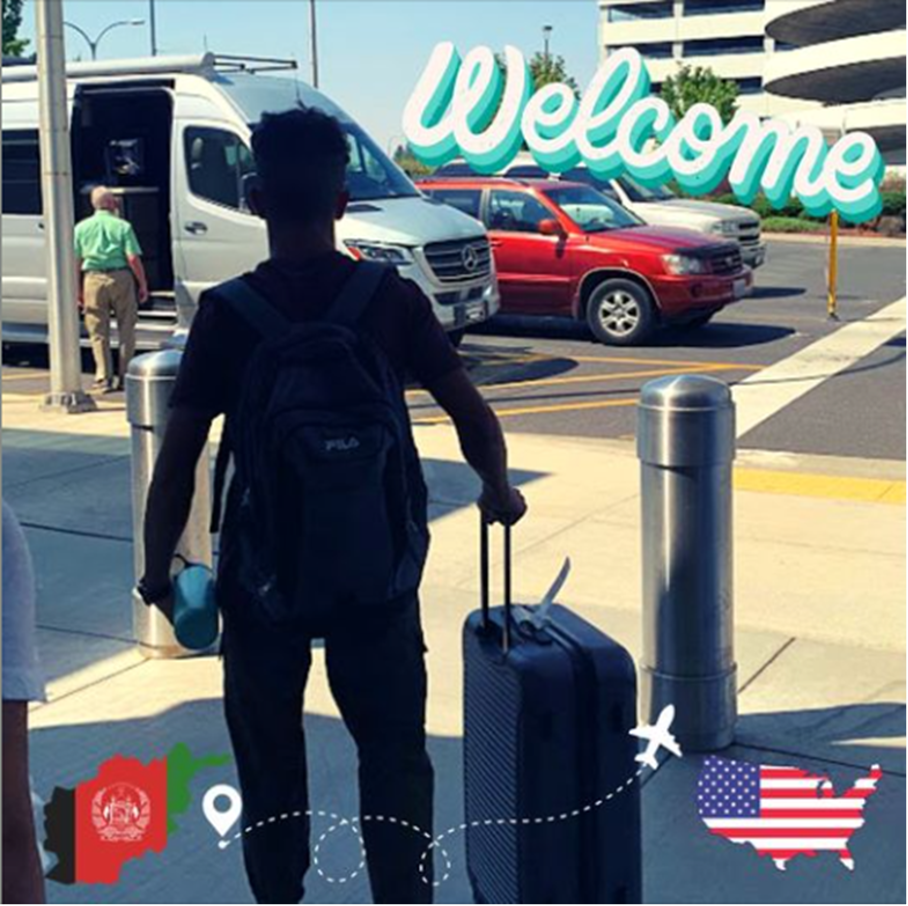Many of the Afghans displaced by the Taliban takeover of Kabul in 2021 found refuge in the United States through Operation Allies Welcome (OAW) and the ongoing Operation Enduring Welcome (OEW). OAW was an interagency initiative that coordinated efforts across the federal government, military, state and local governments, NGOs, and private partners to manage the resettlement of nearly 90,000 Afghans. As Afghan newcomers began arriving in the US in 2021–amid the COVID-19 pandemic–resettlement agencies worked alongside federal offices, healthcare systems, public health departments, social service providers, and community-based organizations to provide much-needed assistance.
Resettled Afghans are acclimating to life in the United States, enriching their new communities, securing public benefits, and seeking opportunities for their families. At the same time, they are experiencing ongoing challenges related to the trauma of sudden displacement and navigating complex systems like health care as English-language learners.
One subgroup of Afghan newcomers who benefit from tailored services and programming is youth who entered the United States as unaccompanied refugee minors—that is, resettled Afghans who were 18 years of age or younger when they arrived, and who came to the United States without a parent or other legal guardian.
Support for Unaccompanied Refugee Minors
The Office of Refugee Resettlement (ORR) provides services for unaccompanied refugee minors (URM) from some 50 nationalities, including youth from Afghanistan. Through its local partners, ORR’s URM Program places eligible minors in foster care with trained, licensed families and provides services to support inclusion in their new community including:
- Help adjusting to life in the United States while maintaining cultural roots
- Case management and support navigating complex health care and education systems
- Health care, including dental and mental health care
- Legal assistance with immigration matters
- Indirect financial assistance for basic needs like housing, food, and clothing
- Coaching to acquire independent living skills for adulthood
- Whenever possible, help tracing family members to reunify minors with their families
With funding from ORR, states administer the URM program and sponsor contracts for community organizations to work directly with the minors. Overall, the URM program combines resettlement and child welfare services to offer much-needed support to youth who are integrating into a new community, managing traumatic experiences–including displacement and violence–and navigating their adolescence and early adulthood without the help of a parent or guardian.
Welcoming Unaccompanied Refugee Minors in Washington
Lutheran Community Services Northwest’s URM programs in Spokane and Seattle, WA, provide homes and support networks to unaccompanied youth from many countries and have recently been providing tailored assistance to Afghan youth who resettled through OAW. These URM programs are funded by Washington State’s Office of Refugee and Immigrant Assistance (ORIA), which is housed in the Department of Social and Health Services and receives federal funding from ORR. ORIA contracts with statewide community partners like Lutheran Community Services to ensure that refugees and immigrants in Washington have access to high-quality, culturally and linguistically responsive services.
Although Lutheran Community Services Northwest has been serving unaccompanied refugee minors for years, the cohort of youth that recently resettled from Afghanistan presented a unique set of opportunities to strengthen organizational capacity and provide a customized approach to services for Afghan youth:
- Recruiting Afghan foster parents from the community: When Lutheran Community Services and ORIA recognized that the 2021 evacuation of Afghans from Kabul would likely create a large cohort of URM from Afghanistan, they began to recruit Afghan American families to serve as foster parents themselves or to assist foster parents by providing cultural information about religious practices, school, food, clothing, and more. Although it is not always possible to match URM and foster parents through targeted recruitment, in this case, ORIA and Lutheran leveraged the number of arriving youth to create more culturally, religiously, linguistically, and/or ethnically concordant homes that made adjusting to life in the United States a little smoother and enhanced their sense of belonging.
- Creating a group home for URM from Afghanistan: Lutheran Community Services Northwest’s URM program in Spokane developed another opportunity to better serve Afghan URM through a group home dedicated to young Afghans. The home’s cohort grew as Lutherans referred Afghan URM individually to the exact location. Afghan adult employees working at the home shared the youth’s language and culture and served as valuable resources as they adjusted to life in their new community. The home was also conveniently located close to a mosque in Spokane.
- Offering life skills training together with mental health: Lutheran Community Services Northwest’s Spokane office has been partnering with the International Rescue Committee (IRC) in Spokane to offer URM monthly independent living skills trainings that cover topics ranging from job interviews to interacting with the police. These sessions double as a valuable way to address mental health burdens and stressors, even though the youth regards mental health itself as something of a culturally taboo subject. The youth’s discussions about life experiences serve as a natural springboard to talk about feelings, struggles, coping strategies, and other mental health topics without being labeled mental health as such.
Welcoming a large cohort of URM from Afghanistan with intentional program development and expansion has been a substantial undertaking for Lutheran Community Services and ORIA, with many successes and lessons learned. Zach Reiber, URM Program Supervisor at Lutheran Community Services in Spokane, reflects on the last two years as follows: “We’re ready for the next chance to support, taking what we learned from the youth survivors from Afghanistan and a desire to learn as much as we can… How can we continue to ramp up our services, support families and youth, and be as culturally humble as possible?”
